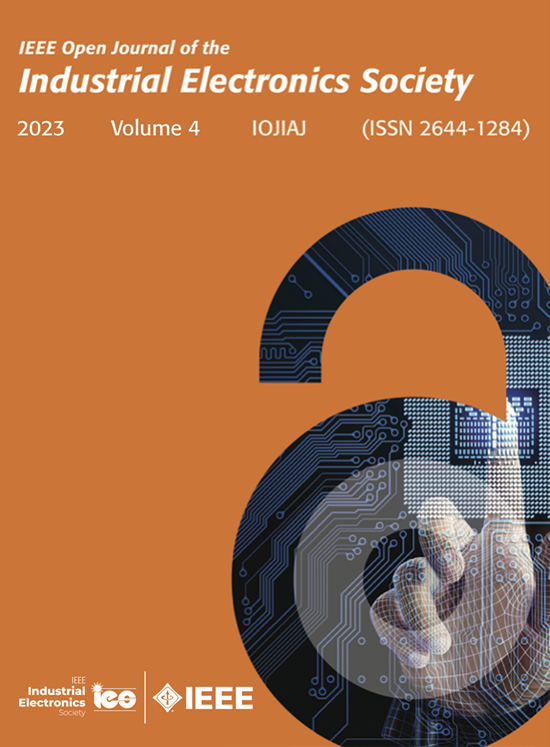Real-Time Capable Thermal Model of an Automotive Permanent Magnet Synchronous Machine
IF 5.2
Q1 ENGINEERING, ELECTRICAL & ELECTRONIC
IEEE Open Journal of the Industrial Electronics Society
Pub Date : 2024-06-12
DOI:10.1109/OJIES.2024.3413331
引用次数: 0
Abstract
Excessive temperatures can lead to accelerated aging and irreversible damage in electric machines. Therefore, real-time temperature monitoring is vital for highly utilized electric machines in automotive drives to ensure that temperatures are within safe operating limits during operation. Installing temperature sensors on all critical parts would incur too much cost. Hence, model-based real-time temperature monitoring is a preferred solution. Recent publications typically utilize low-dimensional lumped-parameter thermal networks. This article presents a modeling method for a permanent magnet synchronous machine (PMSM), where the thermal model is derived using the finite-volume method. The model is calibrated with measurement data. A model-order reduction method is applied, which significantly reduces the computational costs of the model while preserving important (uncertain) parameters, such as heat transfer coefficients. Experimental results for different load cycles of the considered machine validate the feasibility and accuracy of the proposed model. Finally, comparing the model with measured temperatures at positions not used for calibration shows that the proposed method accurately captures the temperature distribution in the whole machine without changing the model structure.可实时运行的汽车永磁同步电机热模型
温度过高会导致电机加速老化和不可逆转的损坏。因此,实时温度监控对于汽车驱动中使用率较高的电机至关重要,以确保在运行过程中温度处于安全工作范围内。在所有关键部件上安装温度传感器会产生过高的成本。因此,基于模型的实时温度监控是首选解决方案。最近发表的文章通常采用低维的叠加参数热网络。本文介绍了永磁同步电机(PMSM)的建模方法,其中热模型采用有限体积法推导。该模型通过测量数据进行校准。采用了模型阶次缩减法,在保留传热系数等重要(不确定)参数的同时,大大降低了模型的计算成本。对所考虑的机器的不同负载周期的实验结果验证了所建议模型的可行性和准确性。最后,将模型与未用于校准的位置的实测温度进行比较后发现,所提出的方法可以在不改变模型结构的情况下准确捕捉整台机器的温度分布。
本文章由计算机程序翻译,如有差异,请以英文原文为准。
求助全文
约1分钟内获得全文
求助全文
来源期刊

IEEE Open Journal of the Industrial Electronics Society
ENGINEERING, ELECTRICAL & ELECTRONIC-
CiteScore
10.80
自引率
2.40%
发文量
33
审稿时长
12 weeks
期刊介绍:
The IEEE Open Journal of the Industrial Electronics Society is dedicated to advancing information-intensive, knowledge-based automation, and digitalization, aiming to enhance various industrial and infrastructural ecosystems including energy, mobility, health, and home/building infrastructure. Encompassing a range of techniques leveraging data and information acquisition, analysis, manipulation, and distribution, the journal strives to achieve greater flexibility, efficiency, effectiveness, reliability, and security within digitalized and networked environments.
Our scope provides a platform for discourse and dissemination of the latest developments in numerous research and innovation areas. These include electrical components and systems, smart grids, industrial cyber-physical systems, motion control, robotics and mechatronics, sensors and actuators, factory and building communication and automation, industrial digitalization, flexible and reconfigurable manufacturing, assistant systems, industrial applications of artificial intelligence and data science, as well as the implementation of machine learning, artificial neural networks, and fuzzy logic. Additionally, we explore human factors in digitalized and networked ecosystems. Join us in exploring and shaping the future of industrial electronics and digitalization.
 求助内容:
求助内容: 应助结果提醒方式:
应助结果提醒方式:


